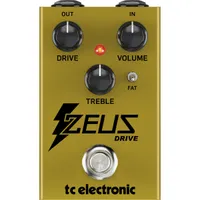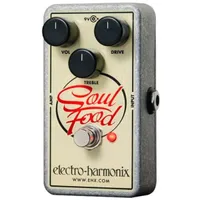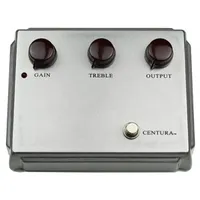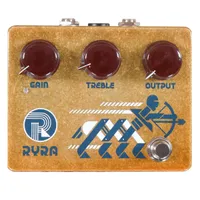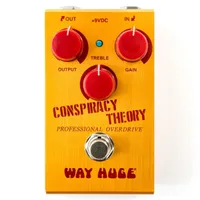Best Klon clones: unobtainium overdrive tone for the masses
Get killer Klon-tones from these excellent and affordable adaptations, including clones by Wampler, Warm Audio, Way Huge, and more
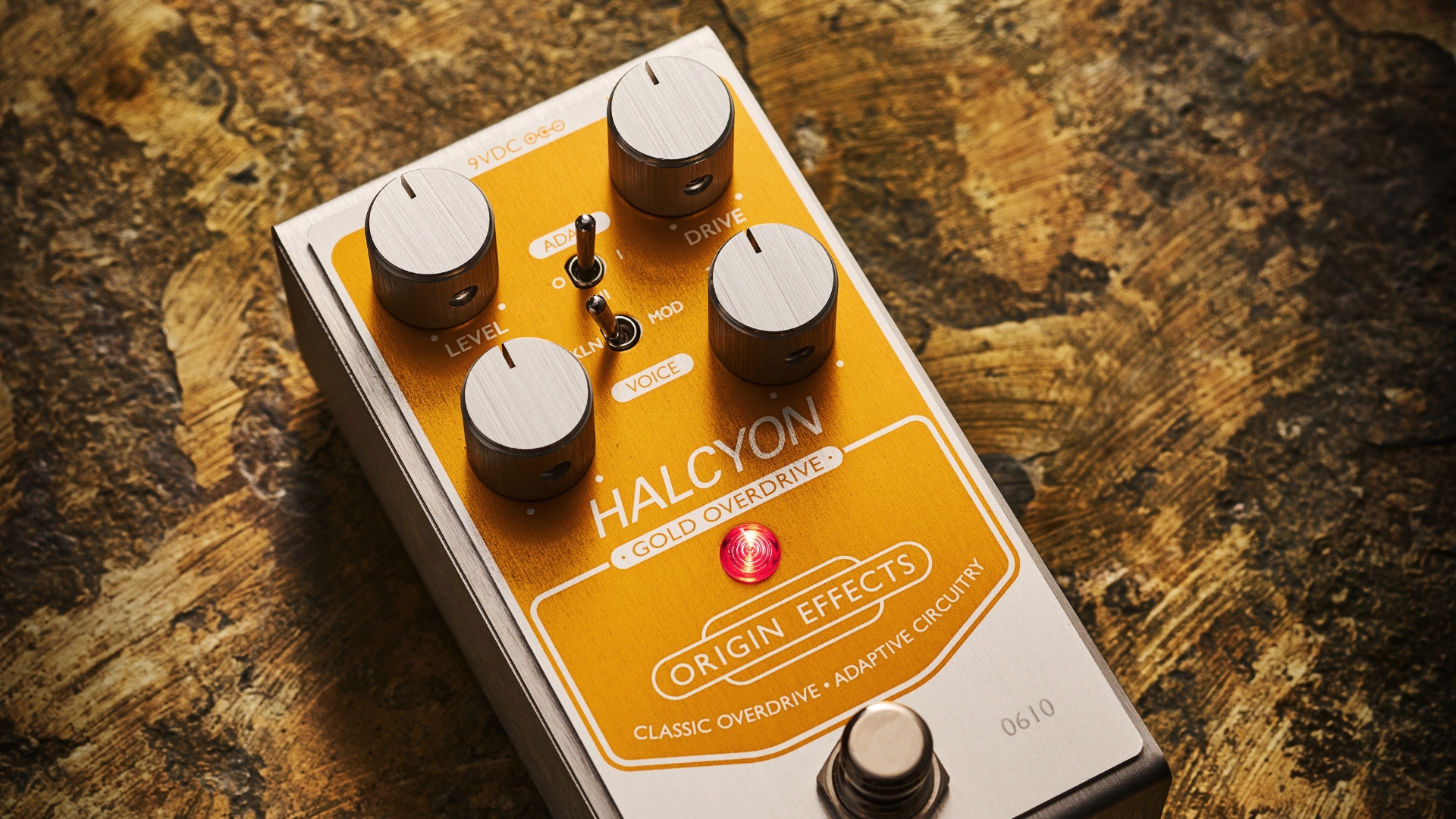
All the latest guitar news, interviews, lessons, reviews, deals and more, direct to your inbox!
You are now subscribed
Your newsletter sign-up was successful
Between the Klon Centaur’s esteem amongst guitarists and its undeniable rarity, there is a veritable black hole of demand. There is also the practical reality that no one has upwards of $5k spare for a clean-boost-slash-overdrive at any one time. Enter the best Klon clones.
The Klon Centaur is a guitar pedal that needs very little in the way of introduction. It is a holy grail device, the source of many guitarists’ avarice; a pedal whose reputation precedes it in more than one way. Some know it for the incomparable overdriven tones it grants to the worthy, while others know it for the insane prices it commands in second-hand markets. Either way, the Klon is up there with good king Dumble as a font of mojo-tone incomparable.
The best Klon clones, or 'Klones' as they're often known, are new interpretations and iterations of the Klon Centaur design, that will get you that rarefied tone without you having to remortgage your house for the privilege. From household-name pedal companies to boutique brands, there are myriad klones that aim to recreate the unique richness of the original circuits – with varying degrees of spin on the theme. But which one is worth that outsized space on your pedalboard?
Well, this is where my handy guide comes in. We at Guitar Player have played myriad Klon clones over the years, testing them for reviews as well as using them on our pedalboards in our own musical endeavors. This lived experience has enabled me to narrow the huge array of Klon clones out there down to just a select few. These are the cream of the Klon crop, picked for their applicability to different ‘boards and use cases.
If you want the best Klon clone overall, I'd go for the Wampler Tumnus. It packs all that classic Klon tone into a much more manageable size for your pedalboard, and some would go as far as to say it's actually a better option than an actual Klon. For those after something a little more budget-friendly, have a look at the Behringer Centaur, which for my money is as close as you can get to the real deal for below the $100 mark.
If you want to know a little more about Klons, Klones, and clean tones, take a sec to check out my how to choose section below. If you just want to find your mojo-tone now please, then read straight on!
My top picks
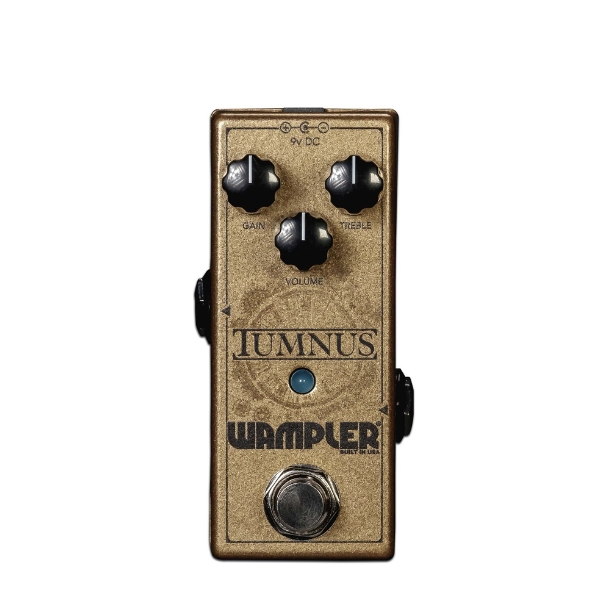
Despite the tiny size, the Wampler Tumnus produces remarkably realistic Klon tones. In a blind test, even the most fervent Klon enthusiast would find it hard to hear a difference.
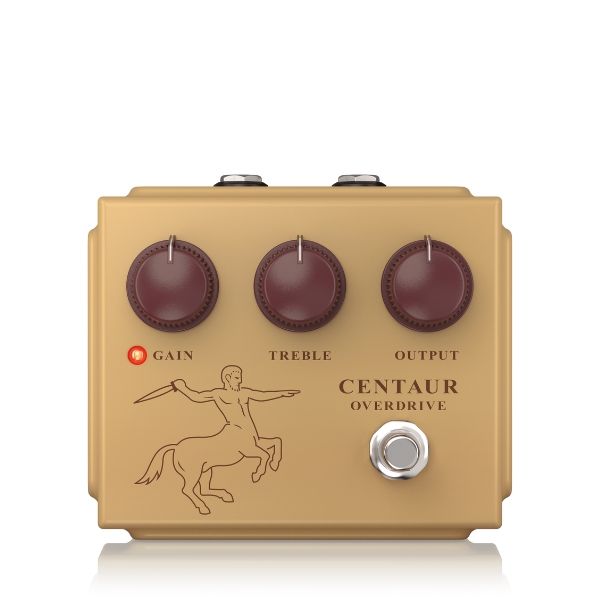
Behringer’s Klon clone doesn’t just sound the part but looks it too; its chassis is a faithful reinterpretation of that famed gold enclosure, albeit downsized for a better fit on modern boards.
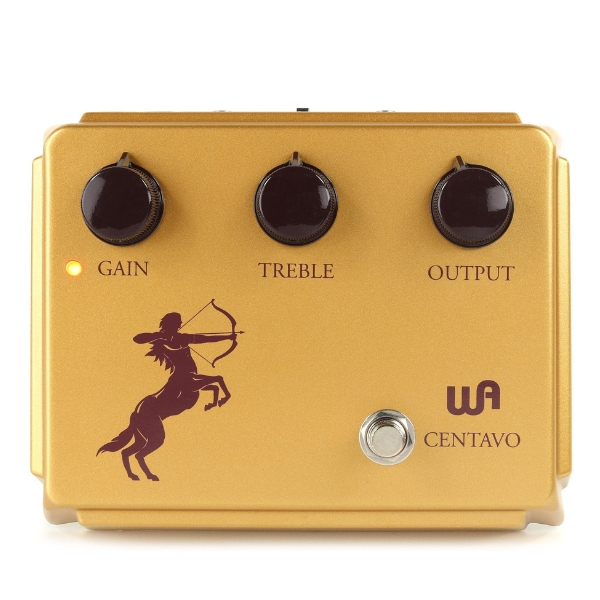
If you want the most authentic experience without spending thousands on a vintage model, the Warm Audio Centavo is as close as it gets to the look and sound of a genuine Klon.
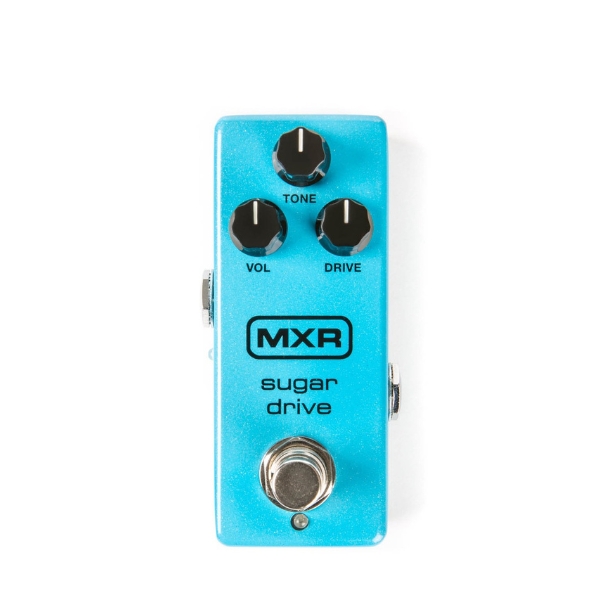
The original Klon is a bulky pedal so if space is tight on your pedalboard, we'd go for the MXR Sugar Drive. It's slightly more mid-pushed than the original and is incredible value too.
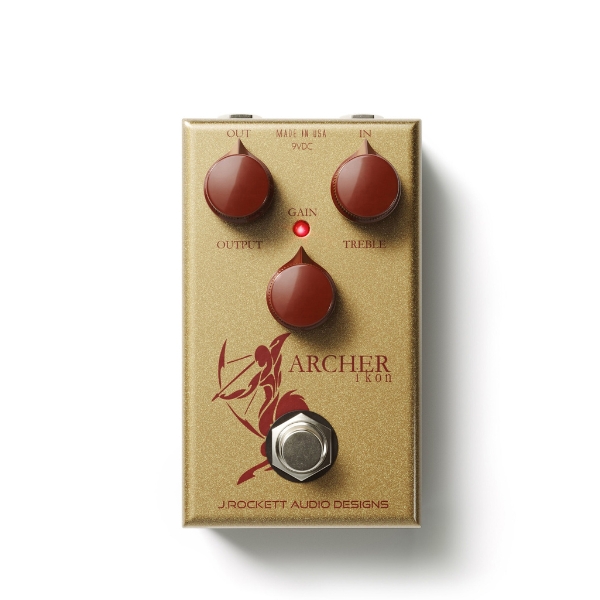
Using a Klon as a boost is a classic move and the J. Rockett Archer Icon has a doubled power input to 18V, making it a brilliant choice for boosting your guitar tone.
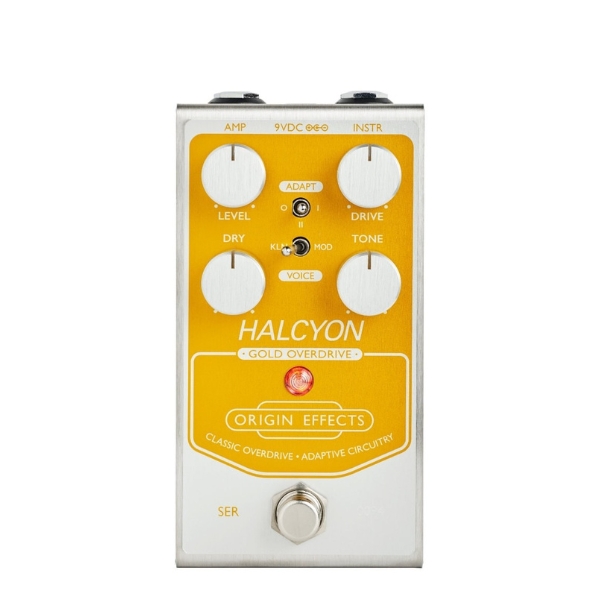
If you want classic Klon tones but prefer your pedals with modern versatility, the Origin Effects Halcyon Gold overdrive has some fantastic additional features to sculpt your sound.
Best overall
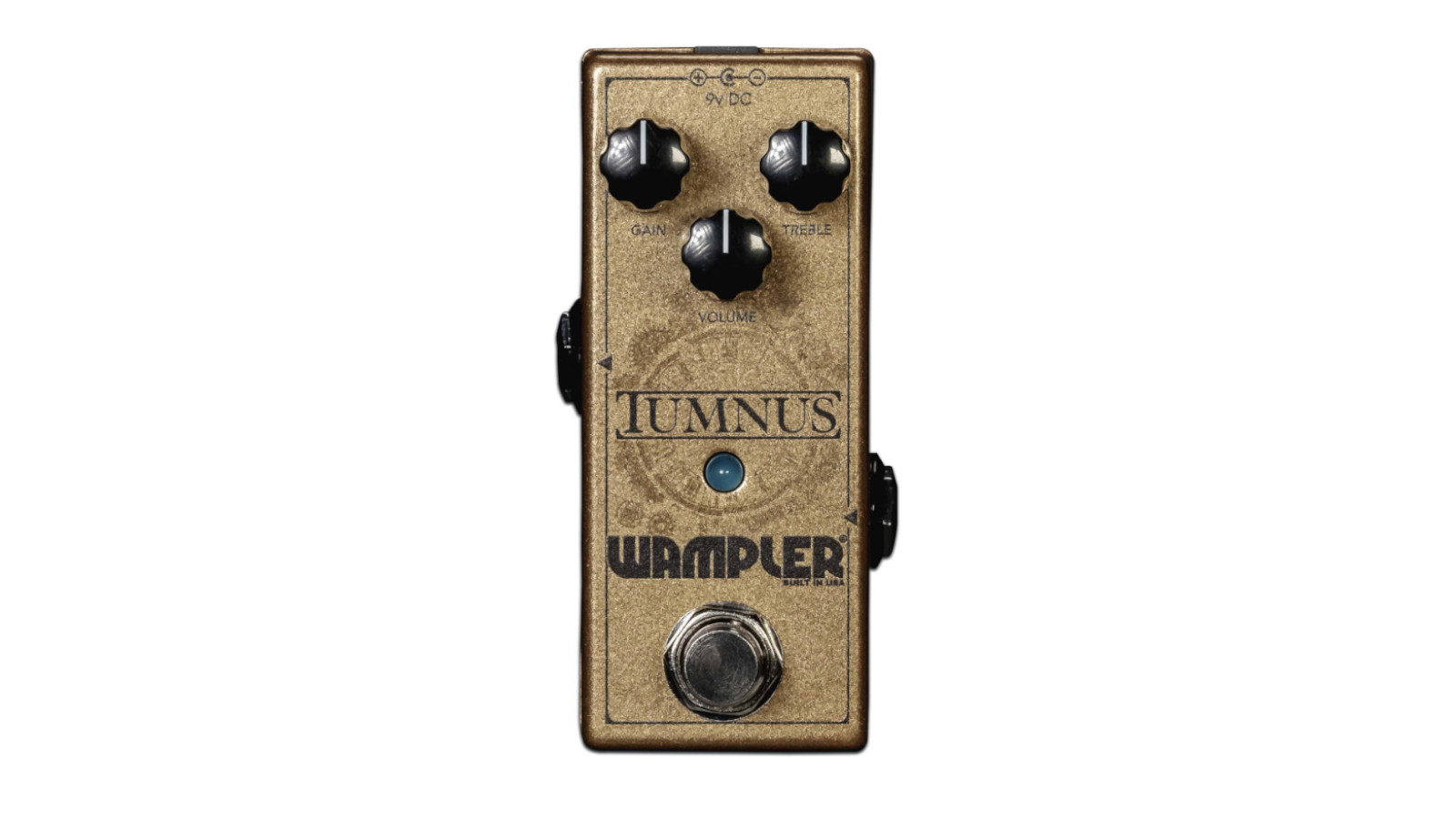
1. Wampler Tumnus
Our expert review:
Specifications
Reasons to buy
Reasons to avoid
Across just about every metric, the Wampler Tumnus is the best Klon clone you can buy. The benefits of the Tumnus start with its comparatively tiny size when placed next to the original Centaur. At less than 2 inches wide, the Tumnus is around a third of the size of the Klon Centaur, which makes it far easier to find room for on a pedalboard.
Whilst the Tumnus differs in size from the original Klon Centaur, the tones it produces are remarkably similar. It retains the warmth and trademark ‘chew’ of the original, providing the scope to take the user from a subtle clean boost to a pleasing overdrive that stacks brilliantly with other pedals. These features make it so close to the original sonically that in a blindfold test, the likelihood is even the most die-hard Klon fan will struggle to tell the difference.
The only real ‘con’ of the Tumnus is its lack of a battery compartment, but that’s also a contributing factor to its small footprint, so it’s hard to complain about. The reality is that even if you can afford an original Klon Centaur, there is a very solid case to be made that the Tumnus is still the better option.
Best budget
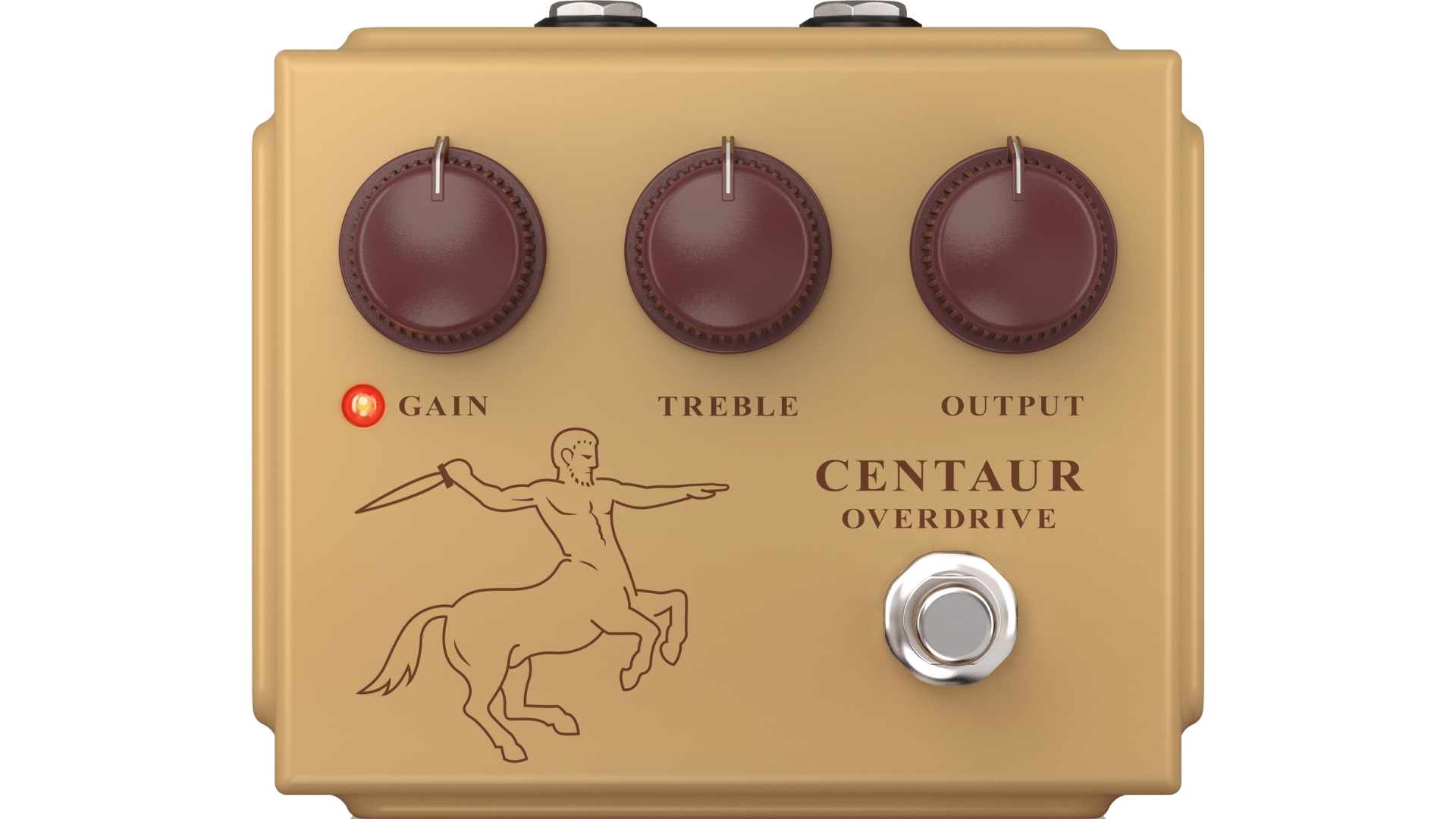
2. TC Electronic Zeus
Our expert review:
Specifications
Reasons to buy
Reasons to avoid
It’s, if anything, a surprise that Behringer hasn’t thrown its hat into the Klon-clone ring until this year of our Lord 2025. This is a brand synonymous with recreations, from those turn-of-the-Millennium plastic-chassis’d copies of popular Boss circuits (which only got their flowers some years after being sold in blister packs at your local guitar store) to the wide variety of synths and MIDI controllers that ape designs past and present.
Whatever your feelings about Behringer’s deft skating around intellectual property laws, it's clear that creator Bill Finnegan feels that this clone is a little too close to the original for comfort. While there are quite a few budget options available from such makers as Electro-Harmonix and TC Electronic, there’s absolutely room for Behringer to do what it does best. And, thankfully, it’s excelled at it.
The Behringer Centaur has a metal enclosure that closely resembles the original Centaur, as well as a three-knob control with that dual-gang gain pot that enables smooth movement from clean boost to transparent overdrive. It’s also much smaller than the OG Klon, so much happier squidging into that spare space on your ‘board. The 18V internal headroom (stepped up from 9VDC in) seals the deal for this rich-sounding sub-$/£100 stompbox.
Best accuracy
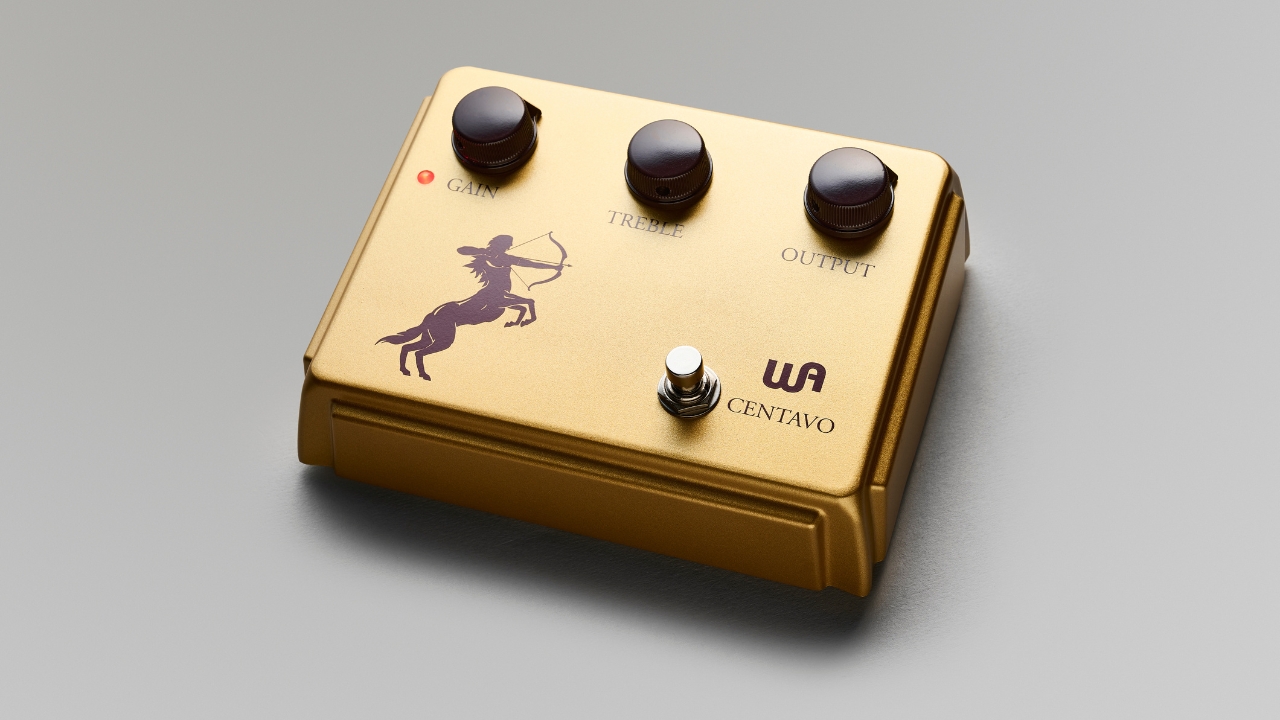
Specifications
Reasons to buy
Reasons to avoid
Warm Audio is a master of cloning sought-after musical equipment, though it started primarily in studio outboard gear. In recent years, it has moved into the realms of effects pedals; and if you’re a master cloner, there is one pedal that would be top of the list to clone.
The Centavo takes precision recreation to the max, replicating not only the exterior of the Klon Centaur, but also using premium grade components including TL072 op amps, vintage-style diodes and a charge-pump voltage regulator to get extremely close to the original internally too. Warm Audio has also added something extra to its Klon clone; a MOD switch on the back extends the bass response to produce lower-end drive tones – this is based on the modification requested by Jeff Beck on his original Klon.
It’s fair to say, very little creativity has been exerted in the design of this pedal; from aesthetics to circuitry, this is a clone in the truest sense. Whilst almost every manufacturer has released their take on an existing circuit before, the issue some have with Warm Audio is that their clones verge on plagiarism. In the eyes of copyright law, they’ve done nothing wrong, and in terms of the audio that comes out of their pedals, it’s also hard to criticize – however there will always be some who think Warm Audio’s ‘homages’ take it a step too far.

"The Centavo is a smooth-sounding overdrive with a nice, tube-like tone and feel. Tested with a new Fender Vintage II ’51 Telecaster and a ’59 Historic Les Paul, the pedal sounded excellent when used like a booster by keeping the gain on the low side and cranking up the potent volume control."
Read more: Warm Audio Centavo review
Best compact
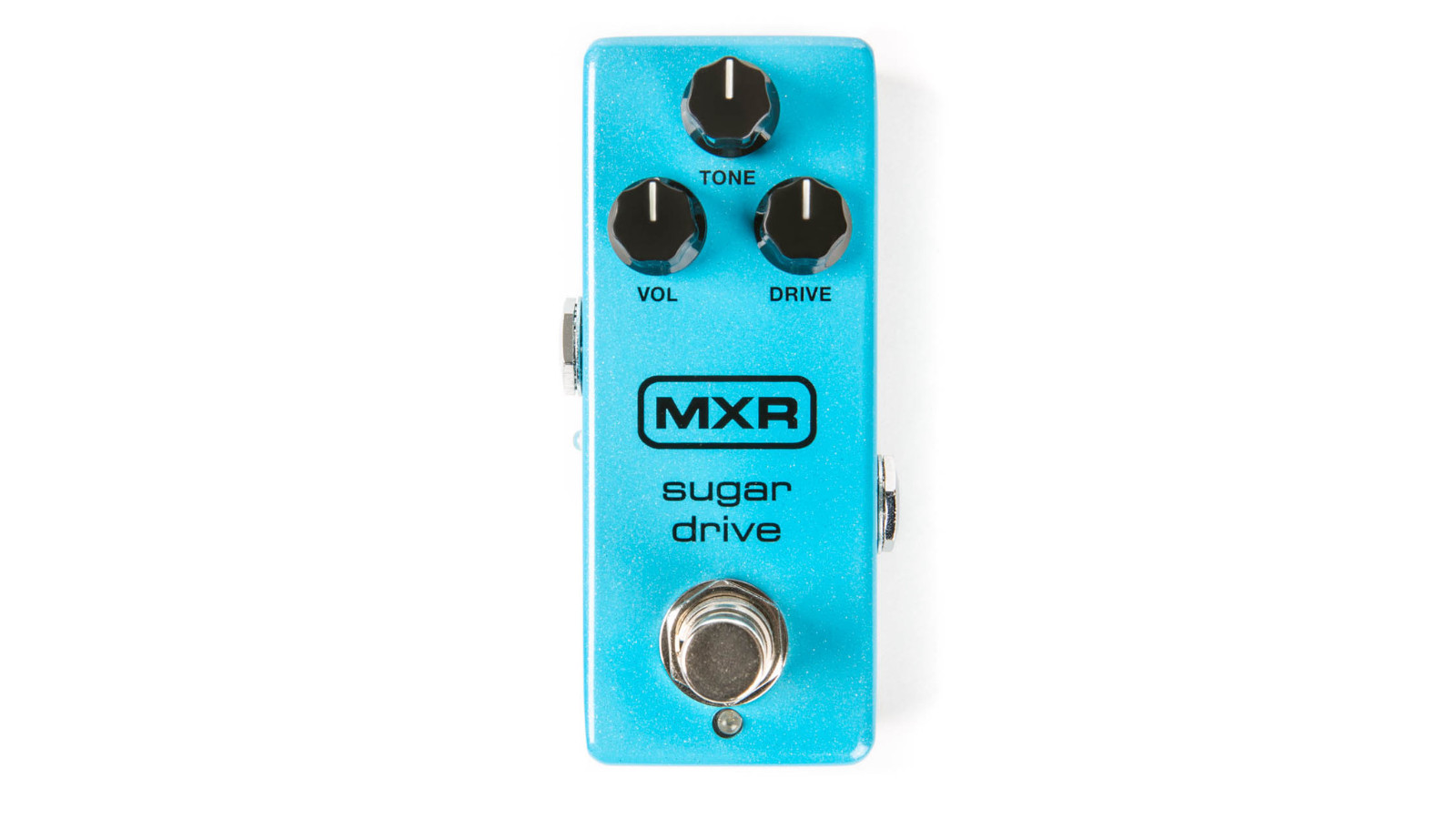
4. MXR Sugar Drive
Our expert review:
Specifications
Reasons to buy
Reasons to avoid
The MXR Sugar Drive doesn’t play on any pony-themed puns, nor does it go for the classic golden color of the Klon, but make no mistake, beneath the surface of the Centaur is from where the Sugar Drive takes its inspiration.
Unlike some other Klon clones, the Sugar Drive does feel more of an homage rather than an outright copy, with a slightly different EQ curve to the Klon, featuring slightly pushed high-mids, which means it does have some crossover into the Tube Screamer realm of overdrives, though the mid boost isn’t that pronounced. Users of classic Fender tube amps should seriously consider the Sugar Drive as it will work really well with the classic, scooped profile of your amp. It also differs from the Klon by having a switchable bypass taking you between buffered or true bypass – where the Klon is only buffered – so both Klon purists and true bypass fans are catered for.
The Sugar Drive doesn’t have crushing high gains, though it does feel like it has a bit more to play with than some other Klon clones. With the drive knob turned all the way up and using some humbuckers, the Sugar Drive has a thick and chunky gain, which could be an awesome rhythm tone for anything from classic rock to punk. Given its modest price point, and for those looking for something a little different from your run-of-the-mill Klone, the Sugar Drive is well worth a go.
Best headroom
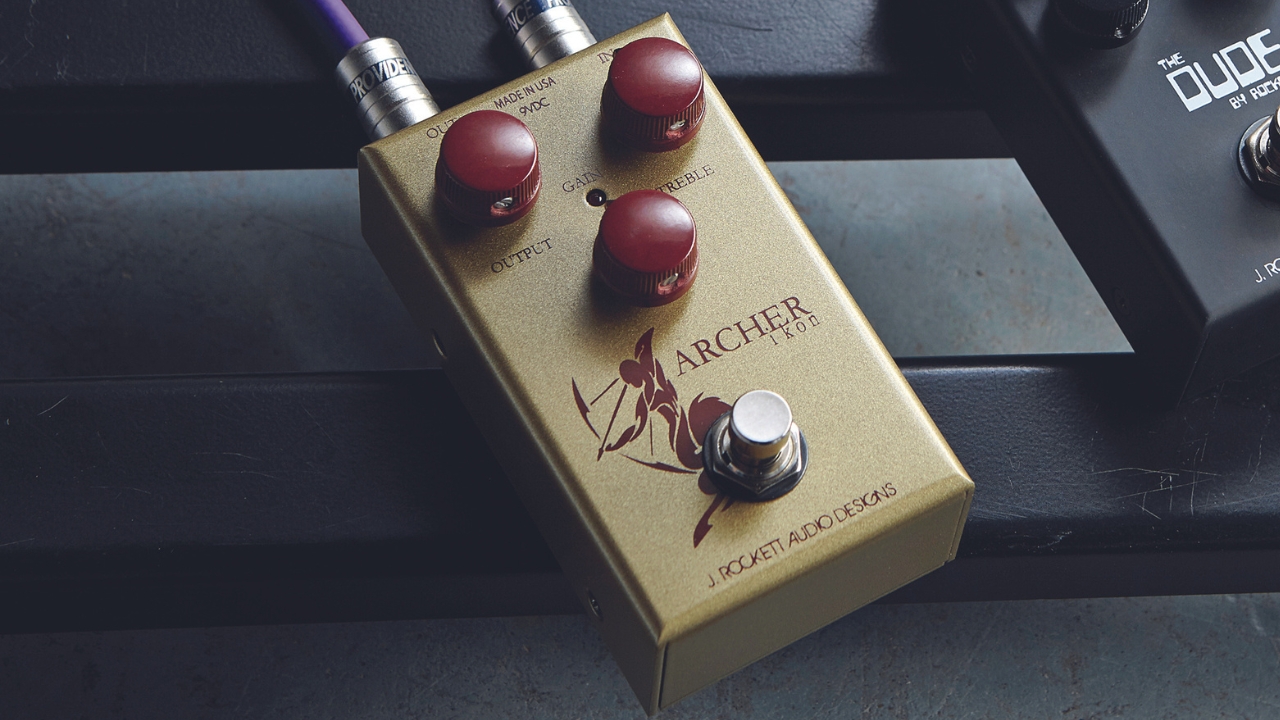
5. J. Rockett Audio Designs Archer Ikon
Our expert review:
Specifications
Reasons to buy
Reasons to avoid
The Archer from J. Rockett Audio Designs (JRAD) is one of the stalwarts of the high-end Klon clone market, with the original Archer design hitting stores in 2014. The pedal was an immediate hit, but some felt there were some tweaks that could improve it – enter the Archer Ikon.
Whilst ‘girth’ may not be what you are looking for in a Klon, the Archer Ikon addressed some concerns that the original Archer lacked low end, meaning the Ikon is generally warmer at low gain, whilst at higher gain it is more reminiscent of the original Klon. It is worth noting that the Archer Ikon has slightly less gain than its silver sibling (the Ikon is gold in color) so for those looking for bags of gain – which even the Klon has never been famed for – this is not the pedal for you.
Built with germanium diodes and featuring an internal charge pump, the incoming 9V power supply is doubled to 18V, which gives the Archer Ikon plenty of headroom, making it among the very best pedals you can use as a clean boost. At one point, the Archer was considered by many as the Klon clone to beat in all areas, but others have gotten closer in recent times – and in a congested market it is not the clear champion, but it’s still one of the best on the market.
Best modern

6. Origin Effects Halcyon Gold Overdrive
Our expert review:
Specifications
Reasons to buy
Reasons to avoid
Origin Effects has a unique ability to elevate just about every pedal/circuit it tries to recreate, and this is no different when it comes to the Halcyon Gold Overdrive, its take on a Klon Centaur. From first viewing, you can see that the Halcyon Gold has an additional knob to the classic 3-knobbed Klon – a ‘dry’ knob, to blend in your unaffected signal, as well as two additional switches, one for voicing and the other an ‘adapt’ switch that allows the player to alter their tone from mid-pushed to transparent boost without adjusting their settings.
The dual voicings are the standout of this pedal, with the ‘KLN’ setting offering quintessential Klon tones, while the MOD setting unveils a more gentle overdrive with a wider mid hump, perfect for Strat players who typically have their guitar amp set to clean.
The Halcyon Gold is a fantastic overdrive pedal, and labeling it merely a Klon clone seems somewhat of a disservice to what is a brilliant feat of engineering. However, if you are looking for a simple Klon clone that will deliver classic tones without complications, this may have one too many layers of complexity for you.
Also consider
To be honest, we think those pedals above are the ones you should spend your money on. But, we also understand they might not quite meet everyone's needs, so here are some other options for you to check out.
TC Electronic Zeus
3 controls w/ 'fat' switch | 9V DC PSU
The Zeus is a cost-effective way of trying out a Klon-style transparent overdrive. Whilst it doesn’t have the tonal versatility of more expensive competitors, it manages to replicate the general tones and, importantly, feel of a Klon, reacting superbly to dynamic playing. The ‘fat’ switch is a smart addition too, though in practice, to get close to Klon tones, this will be engaged more often than not, as without it the Zeus can feel a little thin.
★★★★☆
Electro-Harmonix Soul Food
3 controls | 9V DC or 9V battery
Despite its competitive price, the Soul Food uses the same TL072 op-amp and dual-gang gain control that the original Klon uses, so the company hasn’t skimped on the components. Thanks to its use of these components and the work the EH team has put in to voice it as closely to the Klon as possible, it works really well as an additional pedal in your chain alongside other drives – and given its price, you may well be able to buy two or three pedals to use it with, rather than having just one boutique Klon clone.
★★★★☆
Ceriatone Centura Professional Overdrive
3 controls | 9V DC or 9V battery
In terms of footprint and styling, the Centura – from boutique manufacturer Ceriatone – is incredibly close to the ‘real thing’, and this extends to the way it sounds. The internal circuitry has been carefully recreated to ensure that it has the same broad tonal options as the original Klon, and when engaged it has that same intangible ‘magic’ quality that cheaper replicas can miss out on.
★★★★☆
RYRA The Klone
3 controls | 9V DC or 9V battery
Whilst The Klone is fairly open about its influence through its name and styling, the best homage it pays to the original is its tone. RYRA has managed to capture the super-analog nature of the original Klon Centaur, including its trademark characteristics – namely its crystal clear transparency. The gain knob reacts exactly as you’d hope, taking you from boost when rolled all the way back to a sweet, musical overdrive when cranked.
★★★★☆
Way Huge Smalls Conspiracy Theory
3 controls | 9V DC only
The Conspiracy Theory from Way Huge is an on-the-nose take on the Klon clone; everybody knows that Klons are being copied by just about every pedal manufacturer, so why not crack a joke about it? The tone of the Conspiracy Theory is no joke, however. It preserves the character of your tone – as you’d hope from any good Klon clone – but can take you from a fairly subtle boost up to a tasteful mid-gain.
★★★★☆
How to choose
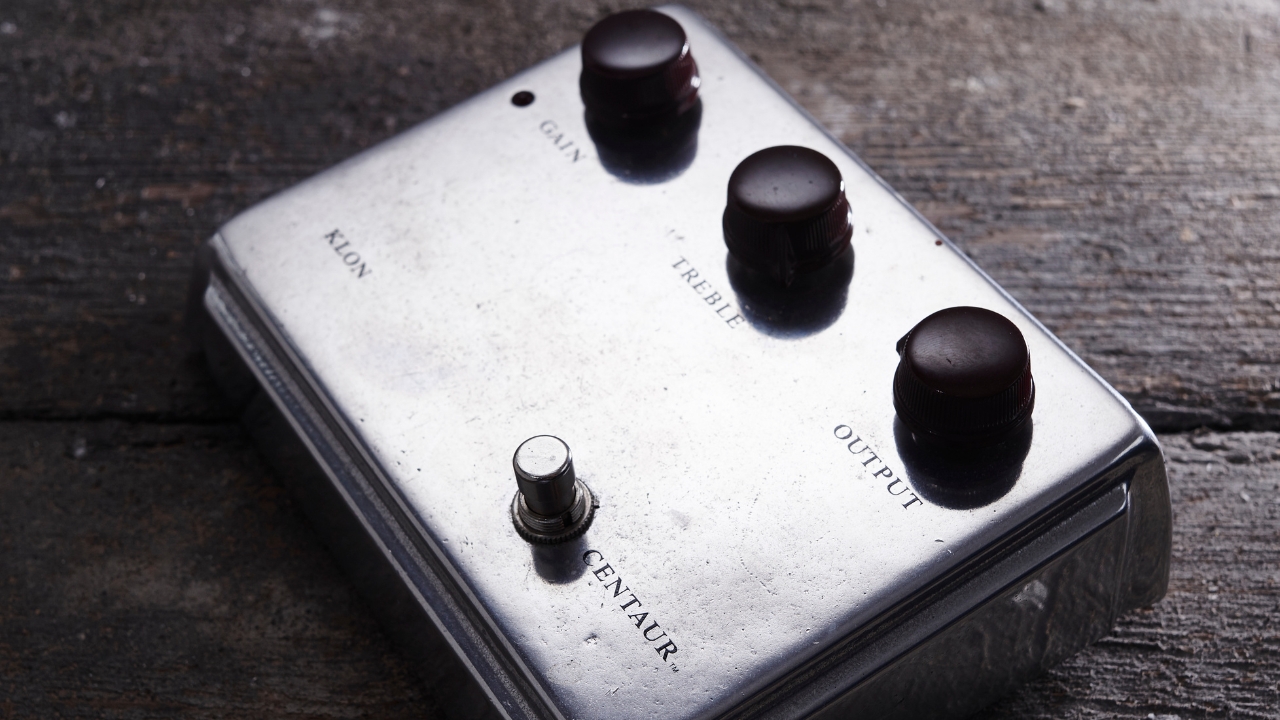
Looking at a storied bit of history like the Klon can make it difficult to choose the right model for you. There's a lot of talk on the internet around this legendary pedal, so to ensure you make the right decision, here's three key things you should look at when choosing what to buy.
1. Price
You can trust Guitar Player.
It's pretty unlikely that most mortals can afford to put an original Klon Centaur on their board. Fetching upwards of $5000 on used websites, even those who can stretch their budget to that price would struggle to justify that sort of outlay for an overdrive pedal.
Thankfully there's a lot of choice for Klon clones at the moment, from budget options such as the Behringer Centaur and TC Electronic Zeus that are around or below the $100 mark, up to high-end boutique copies like the Ceriatone Centura which costs over $200.
2. Power
Even if you did have the money and arguable lack of common sense necessary to buy up an OG Klon, you’d have at least one 20th-century pedal-making pitfall to contend with. The Klon needs to be powered with a polarity-reversed 3.5mm jack, as opposed to the modern standard 2.1mm center-negative barrel jack.
This means you’d need to exercise special caution when powering from your power supply; indeed, you may notice that many Klon owners today choose to use a 9V battery instead of mains-supplied power, to remove any chance of them blowing their outsized investment.
The majority of Klon clones, meanwhile, will happily be powered from your average 9V supply without needing such careful wiring - but it is always good practice, nonetheless, to check precisely what power requirements your pedals have before plugging them in.
3. Size
The size of the Klon is also a big no-no for some. That footprint is uniquely large, and was even at the time of its release! Since then, pedals have gotten even smaller, and pedalboard space has become all the more important for guitarists too. Most of the best Klon clones enjoy significantly smaller form factors than the OG, from the Wampler Tumnus to the EHX Soul Food.
Thankfully for those for whom size isn’t an issue, and mimicking not only the sound but the style of the Klon is key, there are a number of Klon clones that don’t just emulate the tones of the original, but also its looks; the Ceriatone Centura and Warm Audio Centavo choose to replicate the Centaur’s chassis more closely, to the point that most may not even notice the difference.
FAQs
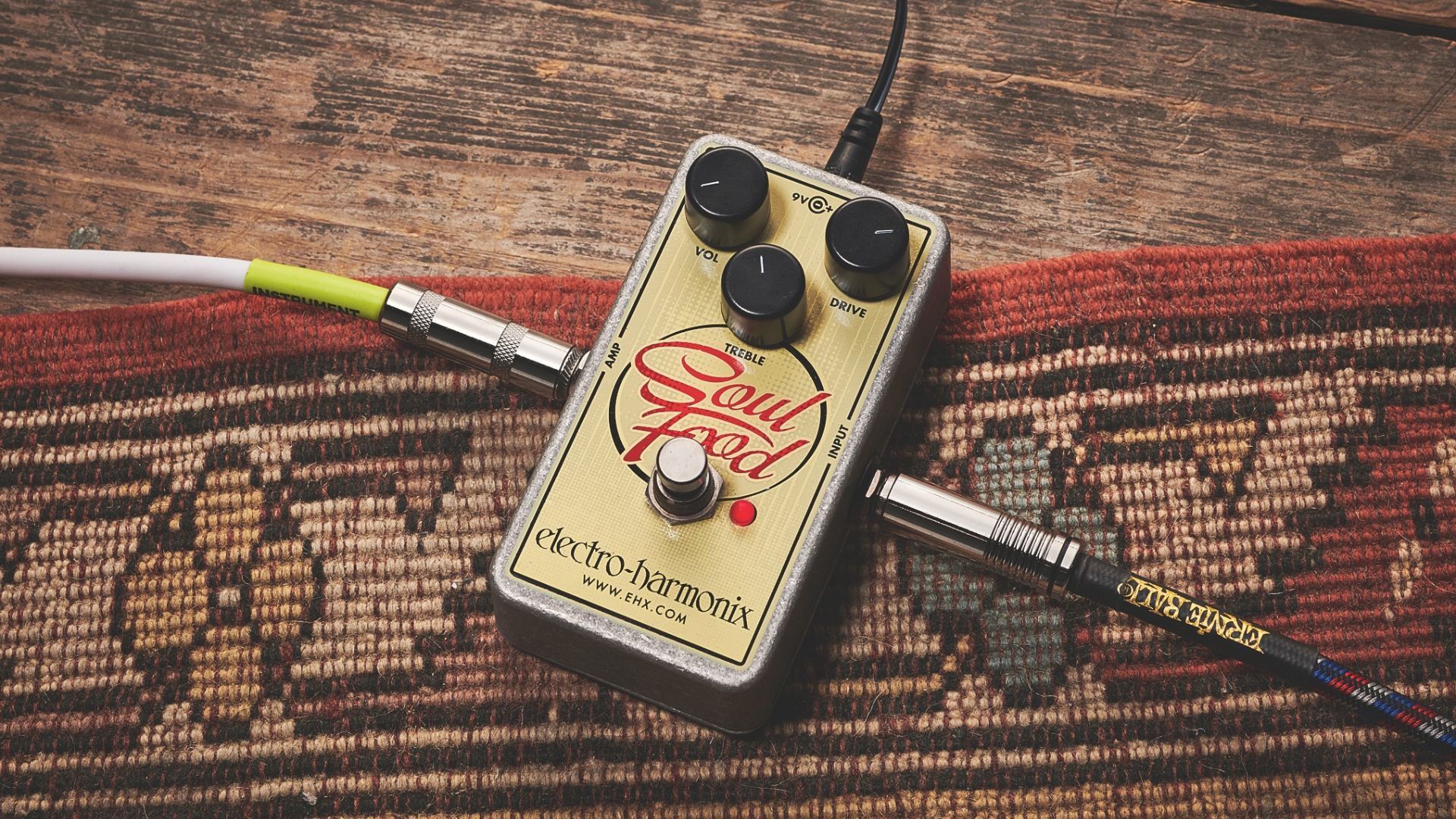
What is a Klon?
The Klon Centaur is a now-legendary booster-cum-overdrive pedal, created and hand-built by Bill Finnegan from 1994 to 2009. It is often characterized as a ‘transparent overdrive’, able to be used as a clean boost but also in possession of a harmonically-rich amp-in-a-box style distortion.
The unique circuit and its adaptability to guitarists’ play-styles and guitar rigs makes it a highly sought-after not-so-little stompbox, which has graced and continues to grace the pedalboards of the guitaring elite – from Jeff Beck to John Mayer and so many between.
The fundamental design behind the Klon Centaur is unique to Finnegan and his two MIT-graduate collaborators. The core of the circuit is the TL072 op amp, two of which are used for four stages of input conditioning and gain. Two germanium diodes are used for hard-clipping between stages, and often pointed-to as the source of the Centaur’s enviable sound; these diodes are changeable from manufacture to manufacturer, though, and Finnegan wasn’t one for matching his diodes from build to build. This means, ultimately, that every Klon Centaur ever made, despite sharing the same circuit design, has the potential to sound slightly unique against its siblings.
The circuit cleverly blends the boosted/clipped signal from a TL072 op amp and hard-clipping germanium-diode pair with two clean feeds, sent forward in parallel. One clean feed is a low-pass filter that adds low end back into the signal after the clipping stage; the other is controlled by way of a dual-gang Gain control knob, which simultaneously blends the clean out as the op amp is pushed more and more.
This dual-gang control is just one of the many magical aspects to the Klon’s topology, and arguably responsible for its incredible ability to pull harmonically-rich tones out of the bag. Another magical aspects is the ingenious use of a voltage converter, to dramatically boost the headroom of the op-amp stage that sums all those parallel signals together. This means faster transient response and the ‘transparent’ boosting of that gloriously-mixed tone.
Ingenious as the circuit is – and despite Bill Finnegan’s attempts to anonymize the circuit by way of ‘gooping’ (coating in black epoxy resin to obscure the circuit’s components and PCB traces) – it hasn’t stopped countless brands attempting to create near-identical clones. Some are painstaking replications based on the reverse-engineering of original Klons, while others aim simply to replicate the Klon’s results with new circuitry. (The latter is something Finnegan himself claims to be impossible, or at the very least reductive – but, to be fair, JHS’s Josh Scott did recently manage to match an OG Klon’s tone with a Digitech Bad Monkey on his YouTube channel. Yes, really.)
What does transparent overdrive mean?
The Klon Centaur is referred to as a ‘transparent overdrive’, but what does that really mean? Objectively speaking, it doesn’t really mean anything; it’s a contradiction in terms. If something is sonically transparent, it does absolutely nothing to your guitar’s existing tone. Meanwhile, overdrives add harmonic content to a signal, fundamentally changing it from its original state (in other words – distorting it).
When guitarists use the term ‘transparent overdrive’ with respect to vaunted pedals like the Klon Centaur or Analogman’s King of Tone, they’re often referring to how they feel about the changed guitar signal they’re hearing. Others with a little more electronics know-how will understand there’s some smart parallel circuitry in the Klon, adding clean signals back in after the clipping stage – and that the high-headroom boosting stage thereafter is receiving and interacting with the harmonic information it receives with the utmost respect, leading to a preservation of harmonic information often lost or altered by successive clipping stages.
What guitarists ‘feel’ a transparent overdrive is doing is adding gain and distortion without vastly altering the tonal shape of their guitar signal. This is borne out by the rich, full-spectrum sound of the Klon, and by the circuit literally involving a clean blend. But what’s actually happening is quite a lot – including some interesting phase relationships between the Klon’s blended signals, and some mid-frequency pushing that helps the Klon more readily activate break-up in beloved tube-amps old and new.
Of course, there are far less transparent overdrives out there. The Ibanez TS9 Tube Screamer, for instance, has a distinctive and far more pronounced mid hump – which, as it happens, was partial inspiration for Finnegan’s development of the Klon circuit.
The purpose of the ‘transparent overdrive’ is theoretically to improve what you already have – drawing out additional harmonic content from your guitar and amp, rather than imbuing your sound with a vastly different sonic profile. The Klon does exactly this for so many guitarists, even if it is a little more colorful in practice than your mind’s ear might tell you!
Do I need a Klon clone?
Not everyone needs a Klon clone, exactly, but many could stand to benefit greatly from using one on their pedalboard. Klons are great clean boosts, and can be trusted to drive your tube amp’s preamp section cleanly and readily. That clever dual-gang gain circuitry enables you to dial in some characterful distortion without losing the essential character of your guitar or your playing, leading you to some rich harmonic territory that doesn’t, so to speak, insist upon itself.
The Klon circuit’s ability to blend clean tones, coupled with its delicious high-headroom summing stage, makes it a great Swiss army knife for the guitarist. Use it as your solo boost; use it as your always-on overdrive; do whatever you like with it! Whatever you do, you’ll know it’s only uplifting your playing.
Why are original Klons so expensive?
Original Klons are so expensive today because of two key things: their reputation, and their rarity. The Klon Centaur’s unique circuit topology stands apart from other overdrives even today, both in design and in resulting sound. The Klon’s parallel-processing approach enables it to be both a great boost for any character amps, and a phenomenally-rich amp-in-a-box distortion for boring amps – and guitarists took notice.
Early on, the ‘gooping’ of the pedals created some healthy mystery around what made the Klon tick. Even as that mystery unraveled over time, more guitarists were taken in by the ‘mojo factor’ of the (actually extremely common) components involved, leading the Klon to be reified as a singular, irreplicable box of arcane tone.
The Centaur was by no means a mass-produced effect, either; only around 8000 were built over a 16-year period, by virtue of Bill Finnegan making them by hand and to order. Put all these pieces together, and you have the makings of a modern musical myth – with an asking price to match.
How we test
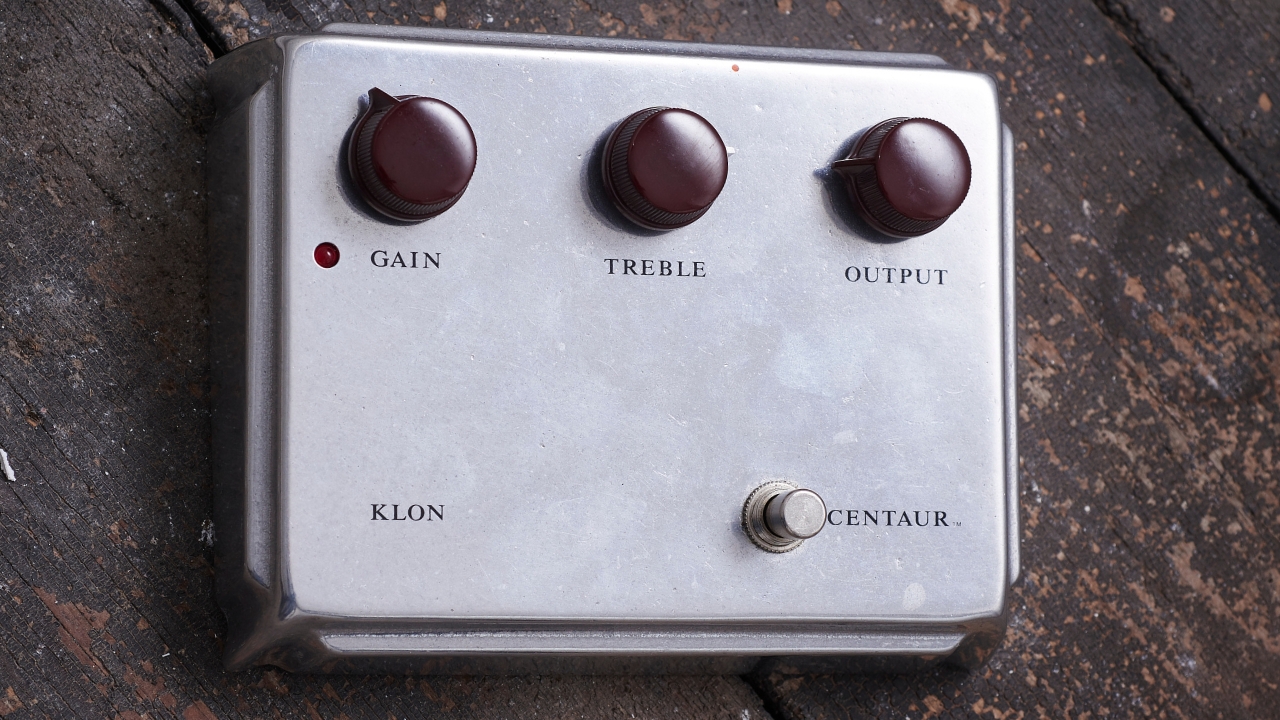
When testing a Klon clone, we're comparing it against a very famous, and very expensive icon of the guitar pedal world. That means the clone has a lot to live up to, even if a Klon is a relatively simple pedal. Nearly every major pedal manufacturer has a Klon clone too, so narrowing the field down takes some doing.
First and foremost, the pedal needs to sound like the original. We're not expecting that it will be exactly the same, but ultimately guitarists who want a Klon clone are looking for that same sound minus the huge fee. Klon clones need to be transparent, retaining your original tone whilst simultaneously boosting it or adding gain when required.
We'll test any Klon clone into the front of an amplifier on its own, as well as putting alongside another pedal to see how it reacts. A classic example is running a Klon into a Tube Screamer, or vice versa to get a range of tones. We'll also test it alongside other effects like reverbs and delays to see how it reacts.
We'll then look at any extra functionality, whether that's additional modes or controls. Many Klon clones offer extra modes that change the EQ profile, making them more flexible than the original. Of course some guitarists may want the pure Klon experience so this can also be a negative, but we're essentially looking to see how much value is added by these additions.
Read more on how we test gear and services at Guitar Player.
Related buying guides
- Check out the best distortion pedals
- Get it all in one with the best multi-effects pedals
- The best delay pedals augment your tone
- Add some space with the best reverb pedals
- The best looper pedals improve your playing
All the latest guitar news, interviews, lessons, reviews, deals and more, direct to your inbox!
Connor is a contributor to Guitar World and MusicRadar. Having been a guitarist since the age of 10, he's played bass and guitar in bands across the South West of England. He has a background in audio engineering, having worked in some of the UK’s best studios including Rockfield and Invada, and has a passion for recording guitar. He is always keen to discover the greatest gear for capturing tone, be that microphones, audio interfaces or cab simulators.
- James Grimshaw
- Matt McCrackenJunior Deals Writer
